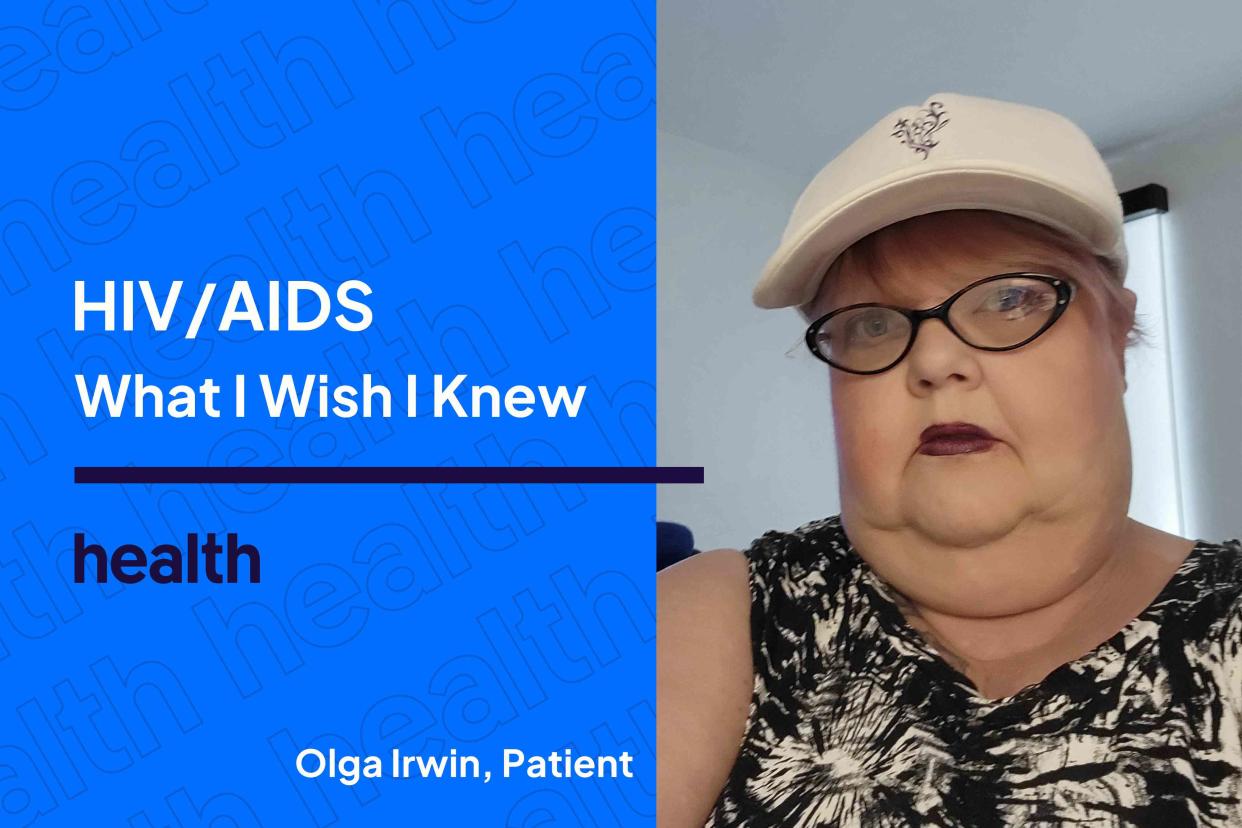What I Wish I Knew About HIV Symptoms

Photo Courtesy of Olga Irwin
Fact checked by Nick Blackmer
When I was diagnosed with AIDS in 1999, I had no knowledge of HIV/AIDS. My doctor told me that with my T-cell count so low and viral load so high, I had probably contracted the virus at least eight to 10 years earlier. This meant the virus had entered my body between 1989 and 1992. The majority of the time between when I contracted the virus and when I was diagnosed, I did not have any symptoms—or so I thought.
T-Cell Count and Viral Load
A T-cell count measures the amount of T cells, a type of white blood cell, in the blood. A viral load tells how much of a virus, like HIV, is in a blood sample. Both measurements can help diagnose HIV/AIDS.
The first sign of HIV can be flu-like symptoms. Once those flu-like symptoms go away, the virus remains in you and continues to slowly multiply. During this time, you may have no symptoms at all. Or, as the immune system weakens, you may experience symptoms. I had to look back through the years before my diagnosis to think of any health concerns I had had that might have actually been symptoms of HIV. Turns out I did have symptoms of HIV—I just didn’t know it at the time.
I’m not sure the exact years my symptoms started, but this is the order that I had them.
First I started to get more and more colds. I also felt like I had the flu when it was not flu season.
Then I started to get rashes on different parts of the body. I was getting the rashes right around the time my father passed away, my mom was diagnosed with cancer, and I got engaged. I assumed the rash had to do with the stress in my life. The rashes looked like poison ivy, so that’s what doctors thought it was. The “poison ivy” rashes became less bumpy and bigger in size, so the doctor then thought the bump was a spider bite. The bump went away for awhile
Then I was planning my wedding, working, and taking care of my mother. I was feeling tired all the time and started to lose weight. Again, I assumed this running tired and losing weight was from stress. I was getting compliments about my weight loss and being asked what I was doing to lose weight. I was not doing anything to lose weight and was eating the way I normally ate. I was so tired I could not enjoy anything. After my wedding, I was so tired all I wanted to do was lie down. The rashes also started to come back.
Then the right side of my stomach and ribs started to hurt very badly from what felt like gas. Turns out I was having a gallbladder attack and had to have an emergency removal of my gallbladder. Now the doctors were really starting to wonder what was going on with me. The healthcare providers did all kinds of tests to see what had caused my gallbladder attack, and nothing was conclusive.
Editor’s Note: HIV is one of the potential causes of acute cholecystitis, which is when the gallbladder becomes suddenly swollen and irritated.
The rash was then spreading to my anal area. My gynecologist saw the rash and sent me to the dermatologist. The dermatologist ran bloodwork to try to determine what was causing the rash. One of the blood tests was for HIV, which no doctor or me had ever thought of.
When I got the blood test results, I was told I had shingles and AIDS and that I had six months to live.
Editor’s Note: People with HIV have a higher risk of shingles, a rash that develops after the virus that causes chickenpox reactivate in the body. Shingles can be a sign of chronic HIV infection.
The dermatologist referred me to an infectious disease doctor, but I couldn’t be seen within the next six months because the infectious disease doctor had a waiting list of patients. My mom called my gynecologist and found a clinic that had just opened up in the area. We contacted the clinic, and they got me in right away. I was told that if I take medication for HIV, I could live many years.
It has been 24 years that I have been living and thriving with HIV/AIDS. If I knew more about HIV and its symptoms, I would have been more open to doctors about my sex life. I would have told them that I had unprotected sex with my previous boyfriend. I would have asked for an HIV test. The sooner you are tested for HIV, the sooner you can get on medication and the fewer symptoms you may have. Had I gotten an HIV test earlier, I might not have gotten so weak or developed shingles, and I could’ve started my treatment sooner.
For more Health news, make sure to sign up for our newsletter!
Read the original article on Health.

